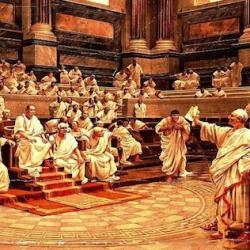Robert Bellamy states the thrust of his “republican defense of constitutional democracy” up front (Political Constitutionalism, viii).
He rejects the common assumption that “a written, justiciable constitution, incorporating a bill of rights” is a “necessary safeguard against the abuse of power by democratic governments.”
Written constitutions often have precisely the opposite results: “Far from guarding against a largely mythical tyranny of the majority, the checks imposed by judicial review on majoritarian decision-making risk undermining political equality, distorting the agenda away from the public interest, and entrenching the privileges of dominant minorities and the domination of unprivileged ones. As such, legal constitutionalism can produce rather than constrain arbitrary rule, detract from the rights protection of weak minorities, and damage the rule of law in both the formal and the substantive senses of treating all as equals.”
Can you say “judicial tyranny”? Can you say “the law is what 9 Harvard and Yale grads say it is”?
What can serve as a check on authority is the people, organized in political parties and exercising their right to select their leaders:
“the workings of actually existing democracies promote the constitutional goods of rights and the rule of law. Party competition and majority rule on the basis of one person one vote uphold political equality and institutionalise mechanisms of political balance and accountability that provide incentives for politicians to attend to the judgements and interests of those they govern and to recruit a wide range of minorities into any ruling coalition. From the republican perspective adopted here, the procedures and mechanisms of established democracies offer adequate, if not perfect and certainly improvable, safeguards against domination and arbitrary rule.”
Bellamy wants to reverse the slogan: The freest government is one of men, not (mere) laws. The actual workings of political institutions are firmer obstacles to tyranny than a written constitution, which always has to be interpreted and will often be interpreted by elites.












